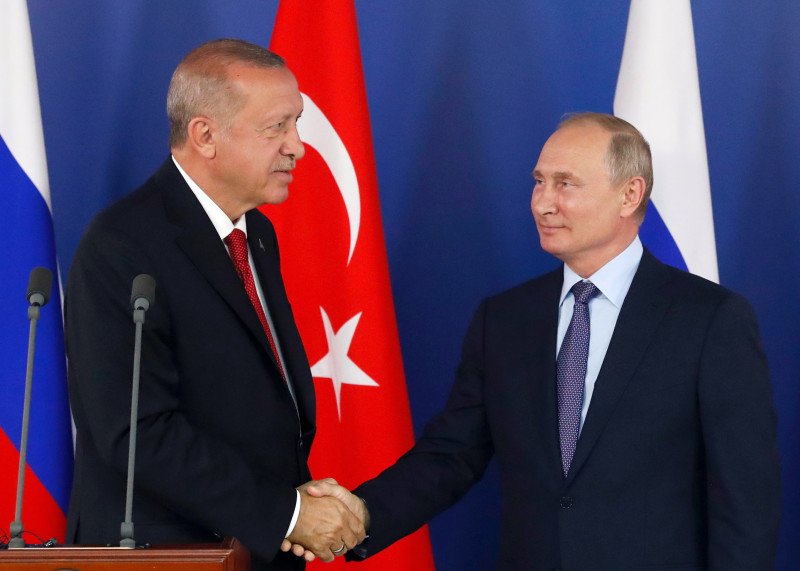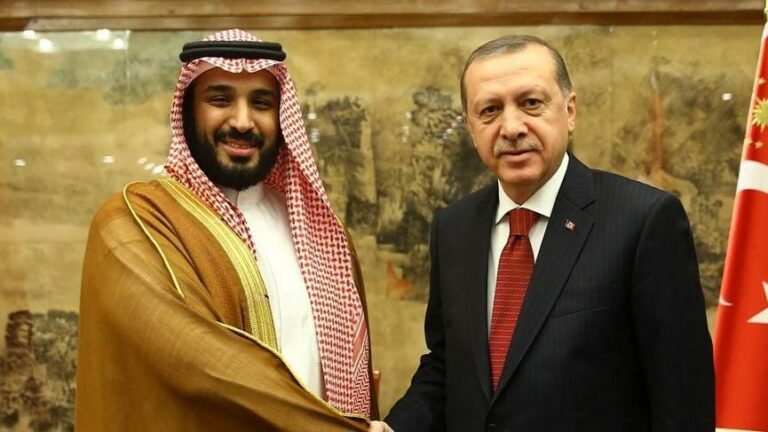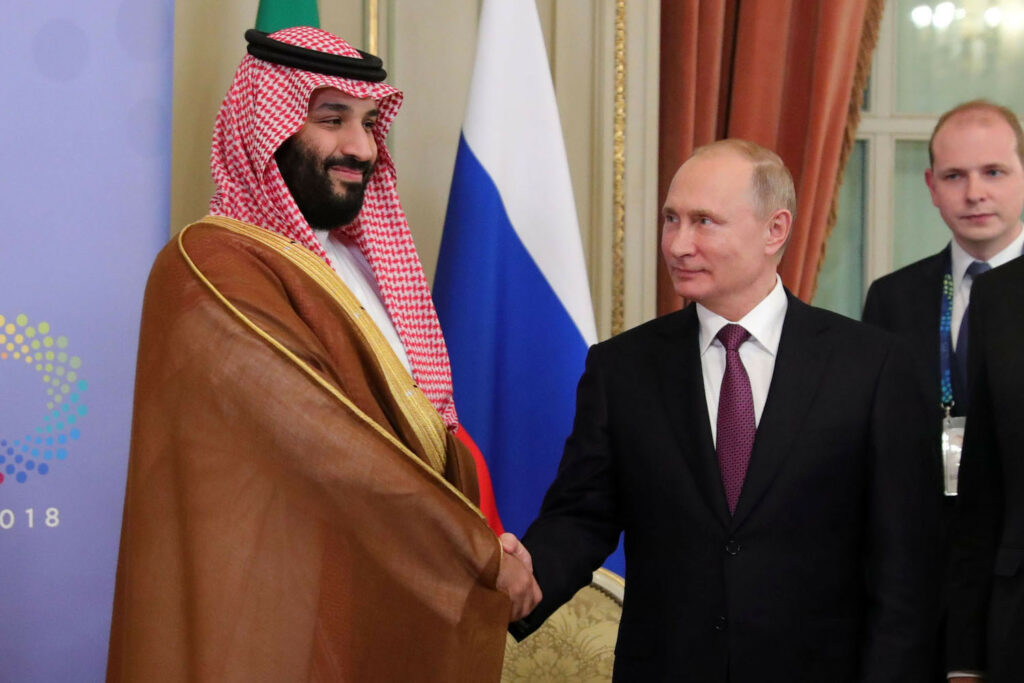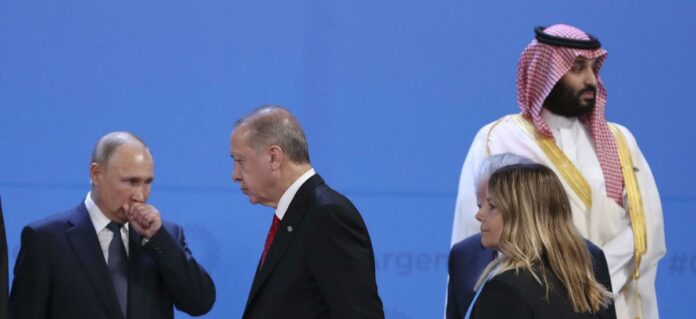By Katya Mavrelli,
Recent international developments have proven for another time that the established status quo is steadily crumbling. The story of alliance formation, leader emergence and regime collapse has been told over and over in the region and has magnetized the world. However, the Great Game for the Middle East has started once more, slowly setting ablaze the existing set up. The region with the greatest instability, some of the highest revenues and some of the most long-lasting regimes has come under scrutiny, and with it, its leaders have become less shy and more determined. But what can this suggest about the stability of the region, the future of its regime and the nature of the future leadership?
The Middle East has been on the agenda of world leaders ever since Western Imperialism came to an end with the Balfour Declaration whilst the Sykes-Picot Agreement helped create a long legacy of continuous western involvement. The formation of the current borders of the Arab world after the end of the Great War signaled the partition of the region and the initiation of conflicts that haunt the residents until today. What is striking though is not the rich history or the strategic importance but that it still magnetizes world leaders and ranks high in the set of political priorities.
Yet the 21st century has systematically shown, time and again, that the strongmen of the region are not some arbitrary western political figures, who are deciding on the course of politics from afar. The Arab world could not be led by anyone other than Vladimir Putin, Recep Tayyip Erdogan and Mohammed bin Salman.
The three strongmen have a lot in common; they are nationalists with flamboyant ambitions focusing on regional influence, broadening of the strategic spheres of influence and solidification of domestic influences. They are the modernized version of autocrats, who have centralized power and have ruthlessly dealt with domestic opposition. They are risk-takers, who happily engage in ongoing conflicts or initiate them, whenever possible, to deploy military forces and acquire regional control. And most importantly, they are believers in the diplomacy of personal relations. Just like mafia members, they can be the tightest of friends one day, signing peace accords and the songs of joint oil drilling operations and bitter enemies the next, backing opposing forces in conflict and dictating the course of trade wars. If, and when, their rivalries get out of hand, civilians suffer, countries bleed, and regimes are toppled.

Zooming in on the Putin-Erdogan relationship, one cannot fail to observe its peculiarities. The very things that make the Russian and Turkish Presidents alike are pitting them against each other. They are popular nationalists, eager to exploit international relations for their benefit and willing to go to great lengths to protect the questions of pride and historical injustice. Both cannot afford to be seen as weak, indecisive and unwilling figures; the stakes for their survival are just too high, with domestic opposition eager to jump at the opportunity of acquiring office and minimize the number of autocratic practices put in place. Despite backing conflicting sides in three regional conflicts, Syria, Libya and now Nagorno-Karabakh, they retain a wary friendship, which makes the Western world worried and fear the possibility of some escalation.
And when MBS of Saudi Arabia is added to the equation, observers quickly realize that the alleged struggle between the three is zero-sum in nature. Different interests and motivations direct different courses of action, but deep down the three of them cannot fail to acknowledge how connected they are and how many similarities their positions have. They may have engaged in large-scale conflicts, as is the ongoing one in Syria, but they have largely been able to control their destructive tendencies and let some sort of rationality dominate.

But now these carefully balanced, yet largely malfunctioning, relationships are going to have to counter the threat of a significantly different Middle East policy that is to be adopted by the Biden Administration. During the Trump era, the phrase “Middle East Peace” was indirectly chanted over and over again, with former President Trump attempting to secure the equilibrium by engaging in direct negotiations, extending warm desire to cooperate from the side of the US and inviting the beginning of new bilateral relations in the region. The end of the marginalization of Israel with the Abraham Accords was an historical step towards the reshaping of the Middle East and the wider Maghreb, while the ongoing rivalry with the Iranian titan seems to be keeping up its pace.
The question of reversing US Middle East policy is a destabilizing, devastating and considerably difficult task. The reversal of foreign policy has been a favorite past-time activity of the White House Administrations, but Trump’s policy of disengagement and protectionism which has been made, is largely impossible and costly to adopt a different stance. And while this is good news for the three strongmen, this might be a bit problematic for the rest of the world.
With Trump leaving them free reign in the region, largely avoiding interventions where he could not afford to, and backing away from territories that the US had previously went to extreme lengths to protect -as was the case of Afghanistan- Putin, Erdogan and bin Salman are in their element. With their regional influences engulfing the whole region, they are prepared and ready to fill the large governance gap that will accompany the change of the US Administration.

The three of them seem to have pressed pause on their plans to extend international influence and pursue different goals in the global politics arena, as they are anticipating the changes that the new administration will bring with it. Their interests remain the same at heart, even more so now that the aggressive and divisive Trump Administration came to an end. But their actions will be more cautious, and their attention will turn more internal, until they are sure they can confidently dominate the regional space once more.
The Middle East is at political, economic and cultural crossroads, with leaders who will stop at nothing to secure the status quo and prevent the upturning of the regional equilibrium, at any cost. Perhaps this new page in the history of the world will be written not as a competition between the three strongmen, but as a period of implicit cooperation and indirect alliances. But time will dictate the course of history, and the actions that will be pursued under the concept of regional stability and domestic consolidation of power.
References
- Tahhan, Zena. More than a century on: The Balfour Declaration explained. Available here.
- Wright, Robin, et al. How the Curse of Sykes-Picot Still Haunts the Middle East. Available here.
- Schaer, Catherine. Under Joe Biden, can US Middle East policy be reversed? Available here.




